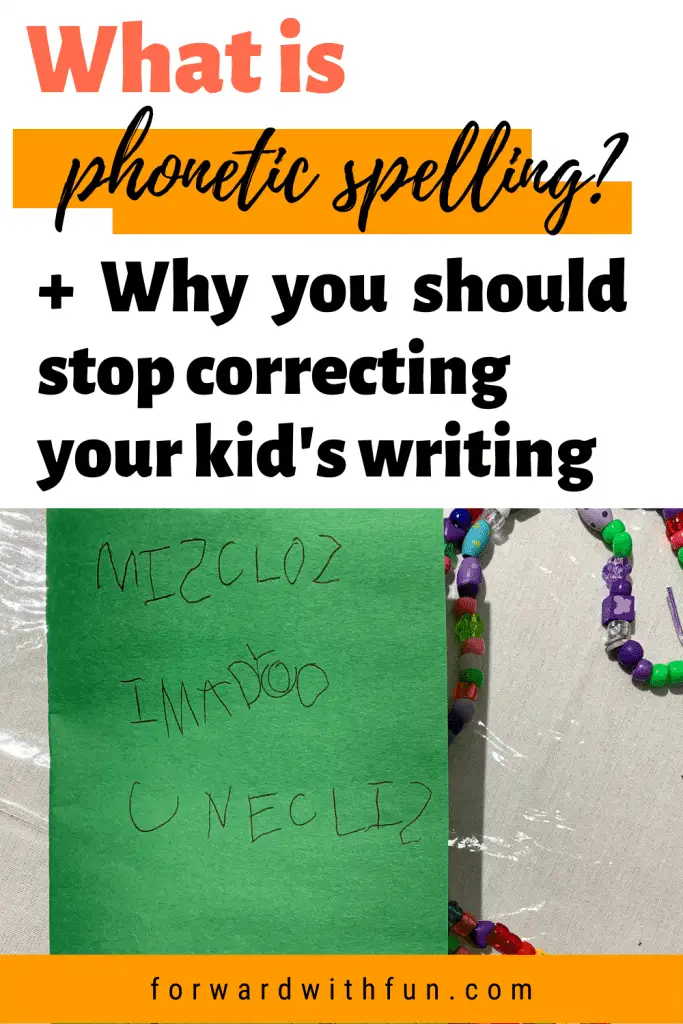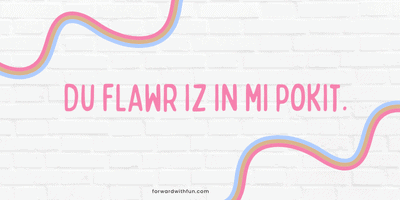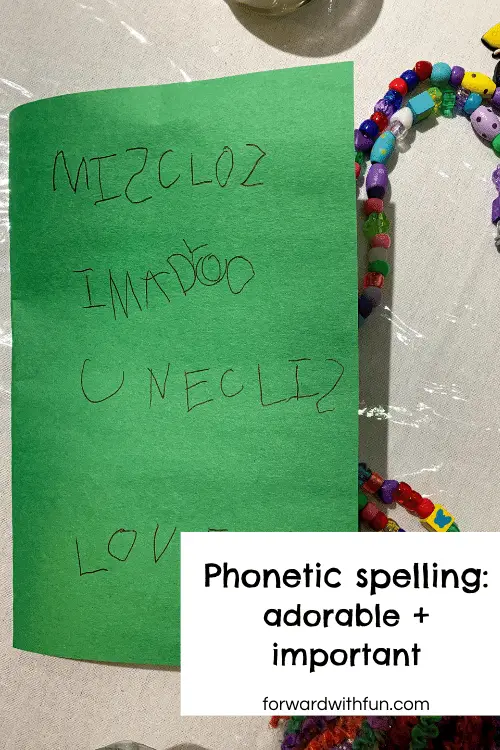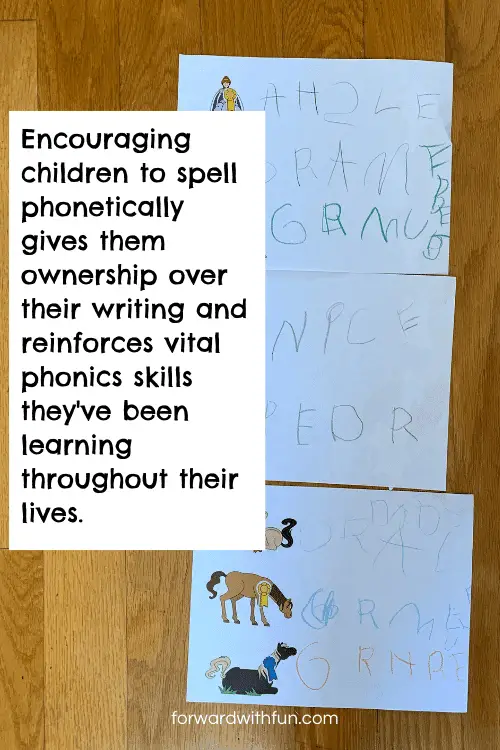
Phonetic spelling is an essential developmental milestone for any child learning the English language. Often adults overcorrect children’s “misspellings” without understanding the role that phonetic spelling plays.
This post includes a parent letter freebie for you to share with families, in order for them to understand how vital it is for children to use phonetic spelling when they're first learning to write. See if you can easily read it, since in true teacher fashion, I wrote it all phonetically.

I’ve commonly called phonetic spelling, “kid spelling” in the classroom. Put in terms children understand, phonetic spelling is spelling words by sounding them out.
Sometimes phonetic spelling is referred to as inventive spelling, because children are creating spellings as they go - instead of spelling by memory.
When children are in pre-k and kindergarten, our focus is to teach them the letters and sounds of the alphabet. Each letter has a sound (or two). Children must master these sounds as the first step on their journey to becoming independent readers and writers.
Instead of classifying phonetic spelling as incorrect, I explain there are two kinds of spelling. One is adult spelling, and the other is kindergarten or kid spelling.
Guess what? Both are right. I've ruffled a few feathers on the internet by saying that, but if you keep reading, you’ll understand why.
When you see the following sentence written by a kindergartener, you’ll notice the words are all spelled incorrectly. Yet, if you read the phonetically spelled “words” out loud, you’ll be able to make sense of what was written.

"The flower is in my pocket." Well written, for a child or someone learning English for the first time! So you may have concluded by now that nope, English is not a phonetic language, unlike Spanish, German, and Polish.
The English language has many words that don’t sound as they are spelled: though, knife, far, raspberry, eight, to name a few.
Additionally, English contains many digraphs (ie. sh, ph, wh, ch). That combined with totally silent letters makes it a challenging language to learn.
Don’t even get me started about sight words like do, is, you. And then come the vowels with many different rules, like i before e, vowel teams, silent e, etc.
There are so many rules, that even I, someone who teaches phonics all day, don’t know them all!

As a parent you might be thinking, “If I don’t correct this spelling, my child will learn how to spell everything incorrectly.”
I understand why people think that! But imagine this: you’re a young child who has no concept of reading and has just learned your alphabet.
After using the alphabet sounds you have been mastering over the last year (20% of your life!) you manage to sound out the word BOT (boat) only to be corrected and told it is in fact, BOAT.
What? This doesn’t make sense!
When we correct children’s spelling of words they have never been taught to spell, they may become discouraged and feel as if they’re not good at writing. After all, they learned their letters, and now the letters are not all they need!
When we encourage them to use phonetic spelling, we are reinforcing all that letter/sound knowledge. Additionally we are opening the doors for them to write without the help of an adult. This is going to create many opportunities for practice and feelings of ownership over their own writing.
I’d much rather that students spell things incorrectly and feel good about the task of writing than shut down and fear writing because they want to make sure everything is spelled like an adult.
Well, no. That doesn’t make sense either.
The spelling you should correct:
If your kid doesn’t know that a silent e makes the vowel “say it’s name,” then you wouldn’t need to tell them that they need an “e” at the end of “make.”
If your child has learned “is” and “of” as their sight words-which are memorized, then they should be spelling them correctly.
So when they learn a new spelling pattern or rule, those are now words that we can encourage them to spell with adult/standardized spelling.
For the rest of the words, encourage and praise phonetic spelling!
This way, we are reinforcing the alphabetic principle, that letters represent spoken sounds. This is also why in kindergarten, focus on teaching phonetically spelled CVC words: cup, kit, mat, bug, etc. These words make sense to children, and they’ll have more success when spelling them.

Children often ask how to spell words they want to write.
Instead of telling them what letters to write, try asking the following questions:
By encouraging children to listen for the sounds in the words, we as teachers, are building their phonemic awareness- a major reading and writing set of skills, kids will need to succeed in school.
When they ask you if their spelling is right, you can say yes. Remember, adult spelling is different from kid/kindergarten spelling. Both can be right.
At the end of kindergarten, teachers expect children to be able to write short words with at least a beginning, middle, and ending sound, but longer words take time and practice to learn the adult spelling.
Here is a letter for you to pass out to parents. You may notice, I wrote the letter using phonetic spelling.
Challenge yourself or if you're a teacher, the parents in your class, to read this letter. The letter explains what phonetic spelling is and why it’s such a developmentally important step in becoming a reader and writer.
Click the picture to download your own copy or pin it, to save for later!
Do you encourage phonetic spelling with your students?